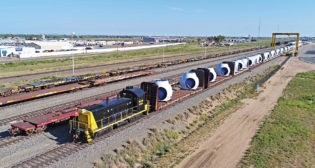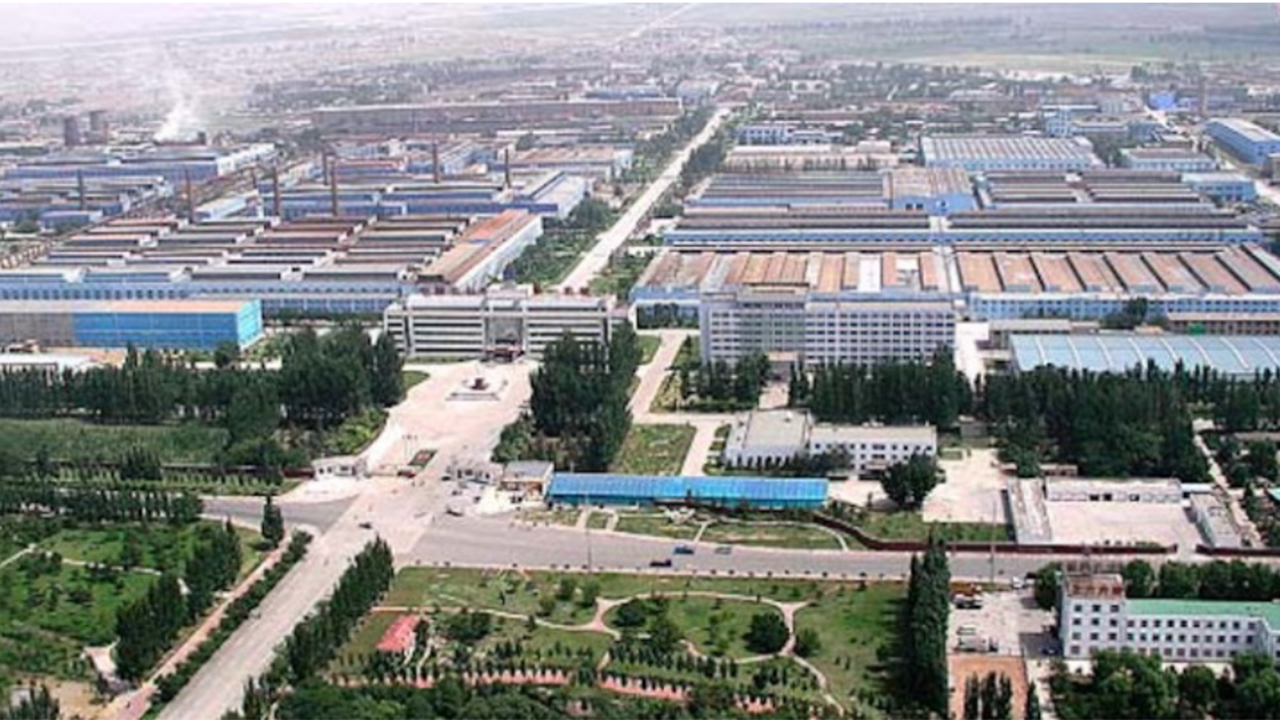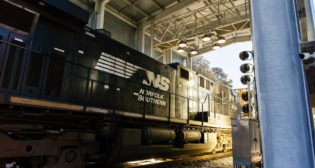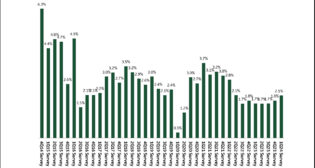
USITC-Imposed Chinese Coupler Tariffs a Good Decision
Written by Robert H. Cantwell, Contributing Editor
Inner Mongolia First Machinery complex in Baotao, China
On March 3, 2023 the U.S. International Trade Commission (USITC) determined that Chinese coupler producers were unfairly selling couplers into the North American market and imposed a duty of 265.99%. On May 3, 2023, the USITC found that couplers produced in Mexico were being sold “at less than fair value” and has imposed a 43.6% duty in response. The petitioners behind the complaint included McConway & Torley, LLC, Pittsburgh, Pa.; and United Steel, Paper & Forestry, Rubber, Manufacturing, Energy, Allied Industrial and Service Workers International Union, AFL-CIO CLC.
Couplers are vital to safe and successful North American freight rail operations, especially as trains grow longer and heavier. A coupler or knuckle failure results in train separations that are extremely expensive and disruptive to network fluidity and customer service. The current coupler designs are the result of decades of development by North American suppliers.
At one time there were numerous North American based freight rail coupler manufacturers, among them ASF, McConway & Torley, ABC NACO and Buckeye Steel Castings (a.k.a. Columbus Steel Castings). To ensure uniformity and interoperability, they were all members of the AAR MCSCM (Mechanical Committee of the Standard Coupler Manufacturers). This committee shared common technical drawings and specifications, and, more important, shared detailed knowledge on the necessary gaging to ensure that each other’s products coupled efficiently.
Since China embraced AAR standards and specifications throughout their freight rail system, coupler intellectual property was licensed to certain Chinese-based manufacturers with the understanding (“legally binding”) that the technology would be used for domestic (China) use only.
Until 2004, these Chinese coupler manufacturers adhered to the MCSCM agreement that prohibited the export of couplers into North and South America. But, with Workhorse Rail as their conduit to the market, the first Chinese manufacturer to violate the agreement was Inner Mongolia First Machinery Group. By 2015, Workhorse Rail’s revenues grew to $35 million. Workhorse was then purchased by Wabtec in 2016 for $44.3 million (source: Wabtec 2016 10K Report).
Here is a little insight into Inner Mongolia First Machinery Group: They produce tanks and vital tank componentry for the China People’s Liberation Army. From globalsecurity.org: Inner Mongolia First Machinery Group Co., Ltd. (referred to as “Inner Mongolia One Machine”) is the country’s only main battle tank and 8×8 R&D and manufacturing base for wheeled tanks. Founded in 1954, the company is one of the 156 key construction projects during the National “First Five-Year Plan” period. It is the backbone enterprise of China Ordnance Industry Group, the only development and production base for wheeled armored vehicles in the country, and the largest equipment manufacturing in the Inner Mongolia Autonomous Region.
If trade tensions with China persist, or a conflict arise, would this enterprise remain a viable supplier of couplers?
Once Inner Mongolia subverted the license agreement, other Chinese coupler manufacturers felt emboldened to begin selling couplers in North America. There are currently four AAR-approved Chinese coupler manufacturers.
Other Chinese coupler producers cited in the USITC ruling:
- Chingzheng Heavy Industry.
- Chongqing Tongyao Transportation Equipment Co.
- Nanjing Ahongsheng rolling Stock Components Co.
- Ningbo Minghui Metal Technology Co.
- Qingdao Lianshen Casting Co.
- Qingdao Sanheshan Precision Casting Co.
- Shaanxi Haiduo Technology Development Co
- Shanghai Voith Xiagujin Chuang Coupler Technology Co.
Not to be impeded by the tariffs imposed in 2016, Chinese couplers started to be imported into Mexico and Canada, installed on new railcars, and brought into the U.S. That’s where the recent USITC ruling comes in. On Nov.12, 2021, the USITC ruled that North American coupler manufacturers are being unfairly harmed by unreasonably priced Chinese-produced couplers.
On Sept. 28, 2022, the investigation was expanded to include couplers produced in Mexico in the complaint. The Mexican coupler complaint was focused on a single producer: ASF-K de Mexico S. de R.I. de C.V., a division of Amsted Rail. On April 20, 2023, ASF-K de Mexico requested that the U.S. Department of Commerce postpone the final determination for up to six months, but was denied. As a result, the duties became effective May 4, 2023.
It is encouraging to see effective, albeit expensive, actions taken to level the playing field in the North American rail supply market. Considering the potential long-term ramifications of becoming reliant on Chinese producers for vital freight couplers, especially from producers aligned with Chinese SOEs (State-Owned Enterprises) and the Chinese military, this is a good decision.

Principal of Rail Supply Chain Associates, Robert H. Cantwell spent more than 40 years in executive positions in the rail supply industry. He spent the first 26 years of his rail industry career growing a successful company, Hadady Corp., a designer and manufacturer of truck (bogie) components and systems for locomotives and transit railcars. Following the sale of his business, Bob helped transform Amsted Rail, holding various executive positions for 16 years. He has been active in the Rail Transportation Division of the ASME (American Society of Mechanical Engineers) and is past Chairman of the Division. Bob holds degrees in Mechanical Engineering from the Georgia Institute of Technology and an MBA from the University of Chicago. He possesses a unique perspective on the rail supply industry, combining his engineering experience along with robust economic and financial acumen. As an active investor in the rail industry, he has a vested interest in the success of the industry. He has also actively advocated with members of Congress in support of the rail and rail supply industry. Opinions expressed here are his own.



